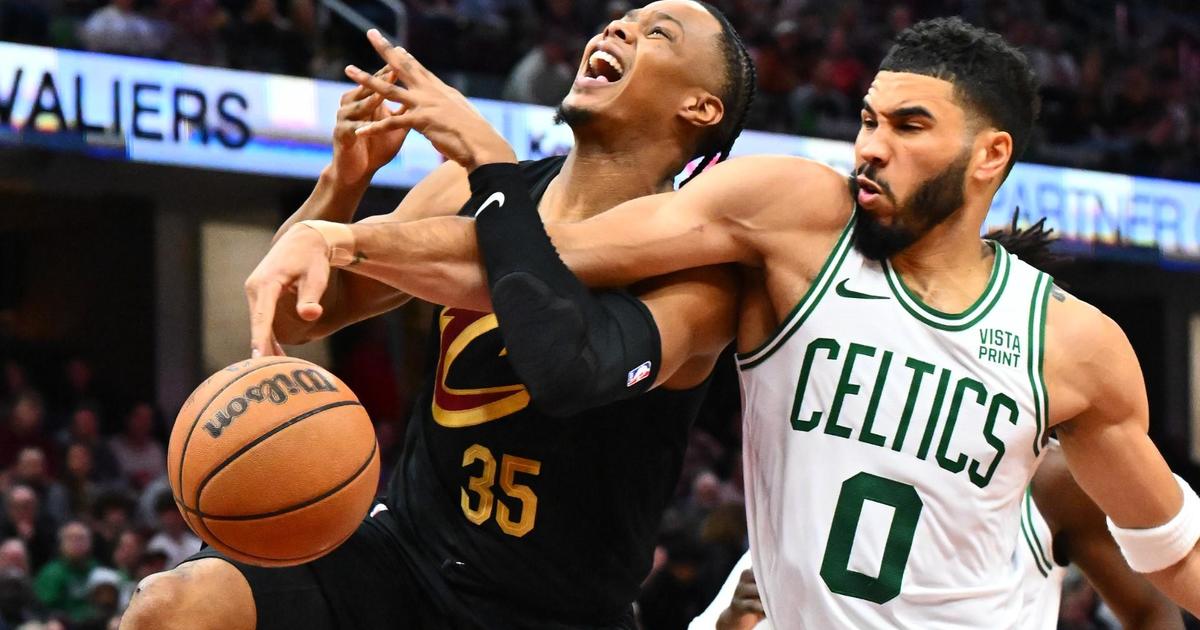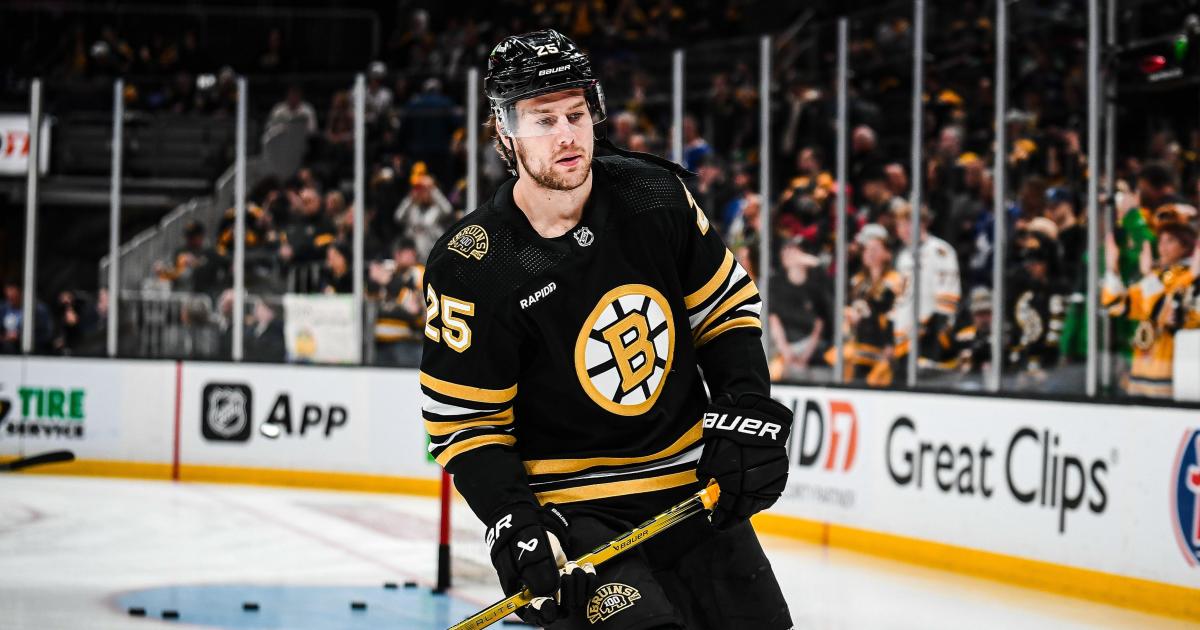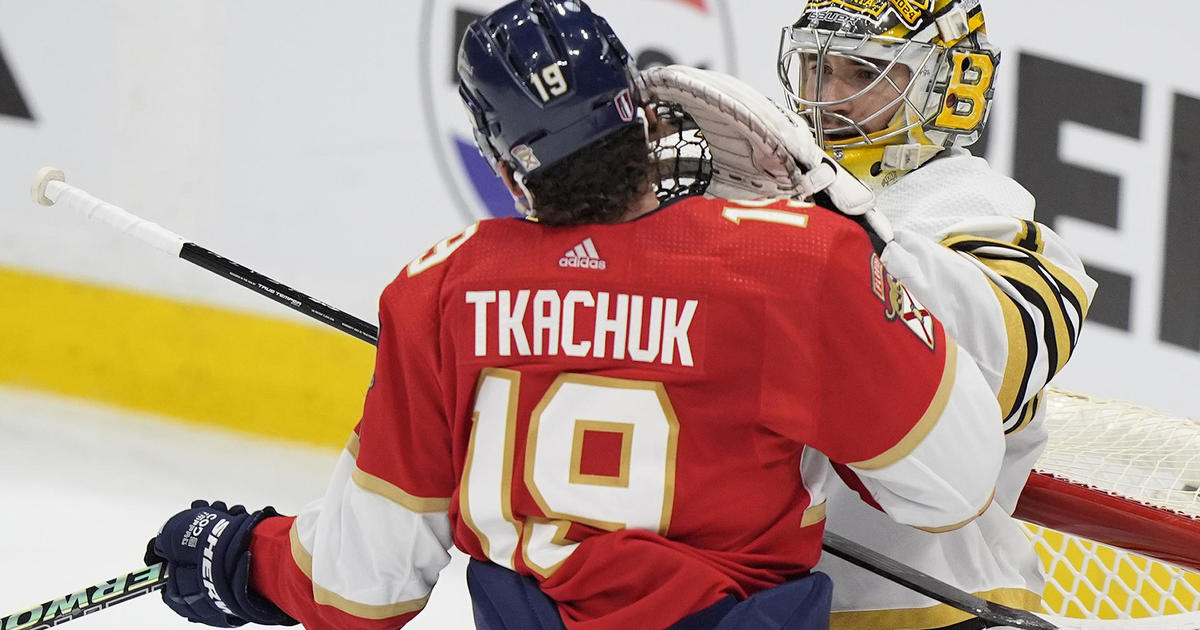Why Burning Year One Of Charlie McAvoy's Contract Isn't A Big Deal
By Matt Dolloff, CBS Boston
BOSTON (CBS) -- Charlie McAvoy burned the first year of his entry-level contract with the Boston Bruins by signing his deal in time for the first round of the 2017 playoffs. This seems like a problem, but in the grand scheme of things, it's not going to make that much of a difference.
Since McAvoy turns 20 years old before Dec. 31 this year (his birthday is Dec. 21, to be exact), the first year of his three-year ELC with Boston kicks in for the current season. Thus, the timetable for his restricted free agency is moved up a year.
But the more important timetable for McAvoy is the one to become an un-restricted free agent, which will be after McAvoy either accrues seven full seasons or turns 27 years old. He will almost certainly play seven seasons before turning 27.
But the key detail, here, is that a player's UFA clock does not start until he has played at least 40 games, not one or 10. So McAvoy's call-up for the playoffs will not start his UFA clock - even if the Bruins played four seven-game series.
The Bruins appeared to be trying as hard as possible to avoid burning year one of McAvoy's contract so he could maximize his time played under that deal. But injuries to both Torey Krug and Brandon Carlo have practically forced their hand; the fact that they gave in and signed McAvoy now is an indication that they don't view burning the first year of his ELC as a big deal, either.
The only possible issue with burning the first year of McAvoy's ELC is that his restricted free agency clock is moved up a year. But even if McAvoy does become an RFA after the 2018-19 season, he will have fewer than three years of accrued experience due to the 40-game rule. The current CBA states that no other team would be able to sign McAvoy to an offer sheet due to having less than three full seasons under his belt. Essentially, when McAvoy becomes an RFA, he will either need to sign the Bruins' qualifying offer or sit out until he agrees to a long-term deal.
This still means that the Bruins are in a spot where they would have to give McAvoy a raise a year sooner than they would if they waited until the 2017-18 season to call him up. The real concern, however, would be to lose McAvoy as a UFA - but this ELC does not change that. It's possible that the Bruins see enough out of McAvoy in the next two-plus seasons that they want to sign him to a long-term deal when he first becomes an RFA anyway.
A big recent example of this is Flames winger Johnny Gaudreau. Calgary burned the first year of Gaudreau's ELC when the winger played one game in 2013-14. Two years later, Gaudreau signed a six-year, $40.5 million extension with the Flames after he became an RFA. Gaudreau has since emerged as one of the league's more dynamic scoring wingers and could provide good value at $6.75 million per season over the course of his deal.
The Bruins also experienced a similar situation with Krug, who finished his entry-level contract then signed two consecutive one-year RFA deals with the Bruins for $1.4 million and $3.4 million before signing a four-year, $21 million extension in 2016.
The likelihood is that the Bruins sign McAvoy to either a long-term extension or a similar "bridge deal" after the 2018-19 season, without any concern of another team swooping in with an RFA offer sheet. But McAvoy could sign a deal at age 21 that is similar to Gaudreau's for an average annual value of $6-7 million and end up out-performing the deal at the tail end of it.
Los Angeles Kings captain Drew Doughty is an example of such a deal; he signed an eight-year, $56 million extension back in 2011 at age 21. Now, at age 27, Doughty is arguably the league's best all-around defenseman for just $7 million against the cap. He's not cheap, but his cap hit next season will be merely the ninth-highest among all defensemen.
If McAvoy can develop into a franchise defenseman, the Bruins will gladly sign him to a similar extension, even if it has to come a year earlier than expected. The worst-case scenario is that the Bruins have to give McAvoy a $6-7 million raise one year early. That's a risk the team would be willing to take if McAvoy is even close to Doughty's level as a player.
If that to you is a "big deal," then we can agree to disagree.
Matt Dolloff is a writer for CBSBostonSports.com. Any opinions expressed do not necessarily reflect that of CBS or 98.5 The Sports Hub. Have a news tip or comment for Matt? Follow him on Twitter @mattdolloff and email him at mdolloff@985thesportshub.com.



